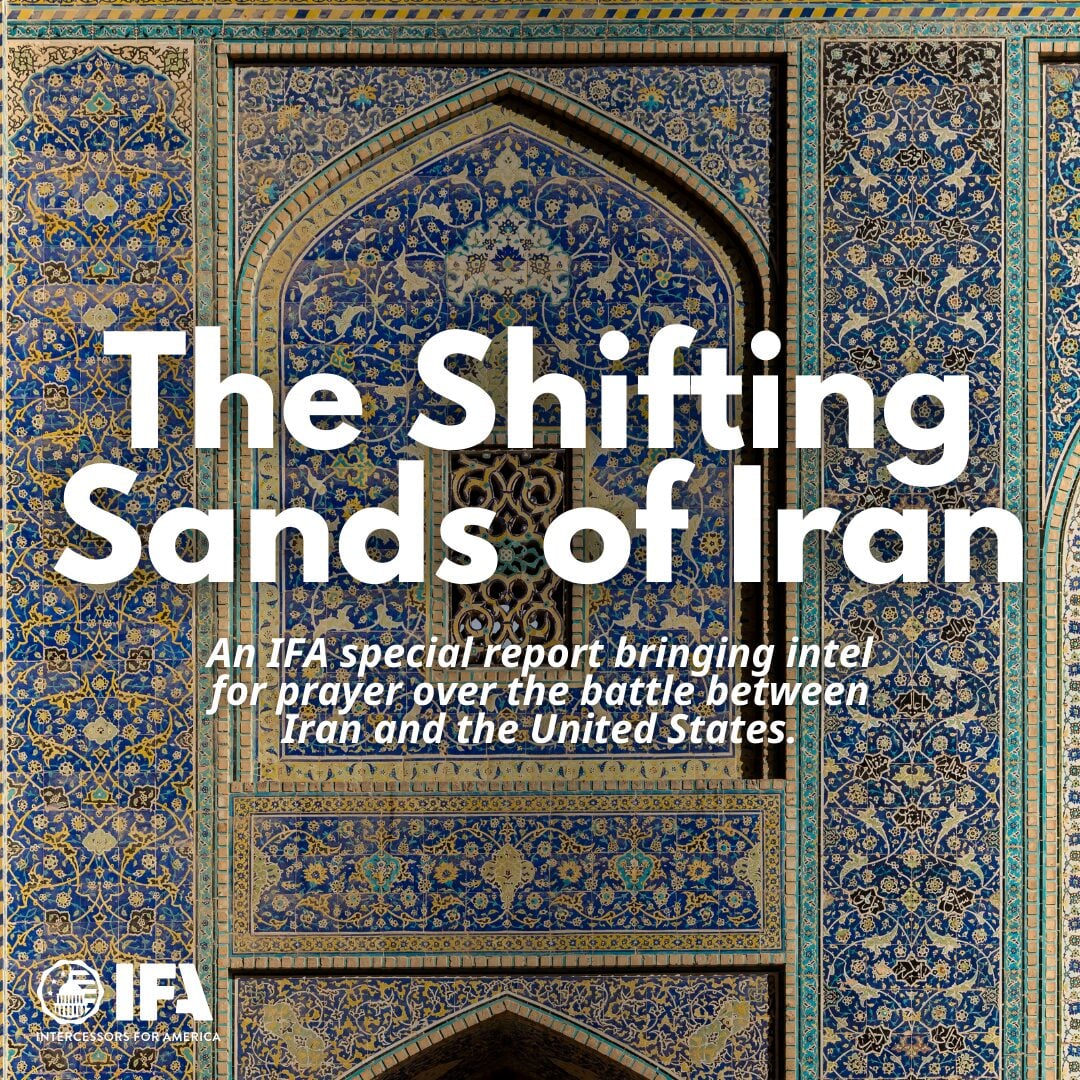5 THINGS YOU NEED TO KNOW ABOUT SCOTUS PICK NEIL GORSUCH
5 THINGS YOU NEED TO KNOW ABOUT SCOTUS PICK NEIL GORSUCH
Thank God for the Biblical principles embedded in the U.S. Constitution. Pray for judges and justices who will make decisions based on God’s wisdom and justice.
“This is what the Lord Almighty says: ‘Administer true justice; show mercy and compassion to one another.’” (Zech. 7:9)
President Donald Trump has announced his pick to fill the vacancy in the Supreme Court of the United States, and it’s 10th Circuit Court of Appeals Judge Neil Gorsuch. Here are five important facts about Gorsuch:
- He Detests Judicial Activism
In a 2005 essay for National Review, Gorsuch wrote:
“American liberals have become addicted to the courtroom, relying on judges and lawyers rather than elected leaders and the ballot box, as the primary means of effecting their social agenda on everything from gay marriage to assisted suicide to the use of vouchers for private-school education. This overweening addiction to the courtroom as the place to debate social policy is bad for the country and bad for the judiciary…the politicization of the judiciary undermines the only real asset it has–its independence. Judges come to be seen as politicians and their confirmations become just another avenue of political warfare.”
Gorsuch goes on to decry the politicization of the court system, writing that Supreme Court confirmation hearings have become death-matches at which both Republicans and Democrats arrive armed to the teeth for “political warfare.”
Gorsuch adds that SCOTUS Justices are now seen as “politicians with robes,” even though their role should truly be apolitical.
- He’s a Textualist
After Justice Antonin Scalia’s death in February 2016, Gorsuch praised the late jurist, adding:
“Judges should instead strive, if humanly and so imperfectly, to apply the law as it is, focusing backward, not forward, and looking to text, structure, and history to decide what a reasonable reader at the time of the events in question would have understood the law to be…”
Examining just one case in which Gorsuch was involved while on the 10th Circuit, his textualism is made abundantly clear.
After the case of United States v. Games-Perez was decided, Miguel Games-Perez petitioned for rehearing en banc. The court ultimately declined. While Gorsuch concurred because of precedent, he also added a lengthy dissent in which he brutally criticized the way in which the law was interpreted in the case.
The case pertained to Miguel Games-Perez owning a gun after having been convicted of a felony, which is against federal law. Gorsuch argued that because the law, as written, is unambiguous in that it requires the defendant to knowingly possess a firearm and also know that one is a felon, Games-Perez should get a fair hearing:
Gorsuch argued that while Games-Perez was “prosecuted under 18 U.S.C. 924(a)(2) for ‘knowingly violat[ing]’ 922(g), a statute that in turn prohibits (1) a convicted felon (2) from possessing a firearm (3) in interstate commerce…to win a conviction under our governing panel precedent in United States v. Capps…the government had to prove only that Mr. Games-Perez knew he possessed a firearm, not that he also knew he was a convicted felon.”
Gorsuch wrote that a “state court judge repeatedly (if mistakenly) represented to him [Games-Perez] that the state court deferred judgment on which his current conviction hinges did not constitute a felony conviction…Given these repeated misstatements from the court itself, Mr. Games-Perez surely has a triable claim he didn’t know his state court deferred judgment amounted to a felony conviction.”
He added that because of the precedent set in Capps, the government never had to prove Games-Perez knew he was a felon. Gorsuch decried such a precedent because it stands in contradiction to the written text of the law:
“Just stating Capp’s holding makes the problem clear enough: it’s interpretation–reading Congress’s mens rea requirement as leapfrogging over the first statutorily specified element and touching down only at the second listed element–defies grammatical gravity and linguistic logic.”
Eighteen pages later, Gorsuch concluded: “Respectfully, I submit, this is a case where we should follow the Court’s lead, enforce the law as Congress wrote it, and grant Mr. Games-Perez the day in court the law guarantees him.”
- He Dislikes Federal Overreach
In August 2016, Gorsuch wrote a concurring opinion for a case in which he scorched the “Chevron doctrine.” According to The Washington Post, “Chevron” is “the doctrine that provides that courts must defer to permissible agency interpretations of ambiguous statutory language.”
Gorsuch wrote:
“There’s an elephant in the room with us today. We have studiously attempted to work our way around it and even left it unremarked. But the fact is Chevron and Brand X permit executive bureaucracies to swallow huge amounts of core judicial and legislative power and concentrate federal power in a way that seems more than a little difficult to square with the Constitution of the framers’ design. Maybe the time has come to face the behemoth…
the framers sought to ensure that judicial judgments “may not lawfully be revised, overturned or refused faith and credit by” the elected branches of government…Yet this deliberate design, this separation of functions aimed to ensure a neutral decisionmaker for the people’s disputes, faces more than a little pressure from Brand X. Under Brand X’s terms, after all, courts are required to overrule their own declarations about the meaning of existing law in favor of interpretations dictated by executive agencies…
Whatever the agency may be doing under Chevron, the problem remains that courts are not fulfilling their duty to interpret the law and declare invalid agency actions inconsistent with those interpretations in the cases and controversies that come before them…That’s a problem for the judiciary. And it is a problem for the people whose liberties may now be impaired not by an independent decisionmaker seeking to declare the law’s meaning as fairly as possible — the decisionmaker promised to them by law — but by an avowedly politicized administrative agent seeking to pursue whatever policy whim may rule the day.”
In his whipping of federal overreach, Gorsuch even quoted Justice Frankfurter: “‘…The accretion of dangerous power does not come in a day. It does come, however slowly, from the generative force of unchecked disregard of the restrictions’ imposed by the Constitution.”
Gorsuch exhibits clear disdain for the accumulation and consolidation of power in the federal government, and for conservatives, that’s a win.
- He’s a Staunch Supporter of Religious Freedom
As reported by Eric Citron of SCOTUS Blog:
Followers of the Supreme Court will recognize two recent cases in which Gorsuch participated on the 10th Circuit, Hobby Lobby Stores v. Sebelius and Little Sisters of the Poor Home for the Aged v. Burwell. In Hobby Lobby, Gorsuch wrote a concurrence in the en banc 10th Circuit that sided with the company and its owners. He stressed the need to accept these parties’ own conceptions regarding the requirements of their faith, and held (among other things) that they were likely to prevail on claims that the contraception mandate in the Affordable Care Act substantially burdened their religious exercise in violation of RFRA. This position was largely vindicated in the subsequent decision by the Supreme Court.
Citron goes on to note several other cases which Gorsuch covered, one of which involved a Ten Commandments display:
In Summum v. Pleasant Grove City, in 2007, Gorsuch joined a dissent from denial of rehearing en banc in a case in which the 10th Circuit had limited the ability of the government to display a donated Ten Commandments monument in a public park without accepting all other offers of donated monuments.
Gorsuch has a sterling record of defending religious liberty, especially as it pertains to organizations defending themselves from federal government overreach.
- He was Easily Confirmed in 2006
The Denver Post writes that when Neil Gorsuch was appointed to the 10th Circuit Court of Appeals in 2006, his “nomination was approved on a voice vote” in the Senate. No official tally was taken because Gorsuch’s nomination “wasn’t deemed controversial.”
Considering his smooth confirmation a decade ago, his appointment to the Supreme Court of the United States should be equally uncontroversial. However, as Gorsuch wrote in his essay for National Review, SCOTUS nomination hearings have become a political war zone. Moreover, after Republicans stalled Obama nominee Merrick Garland for ten months following the death of Justice Antonin Scalia, expect a contentious process.
BONUS! He Likes the Outdoors
According to Politico, Gorsuch, 49, “is an outdoorsman who fishes, hunts, and skis.” A man who hunts is going to be a friend to the Second Amendment.
Conclusion
There are always reasons to be cautious about allegedly conservative, textualist SCOTUS nominees. Conservatives have been burned in the past–most recently by Chief Justice John Roberts, who twice rewrote the law to accommodate the Affordable Care Act. However, after an examination of Judge Neil Gorsuch’s legal record, it appears that he’s not only eminently qualified for a seat on the bench, but also a meticulous jurist who will stick to the letter of the law, regardless of his own opinions.
As Gorsuch himself said: “If you’re going to be a good and faithful judge, you have to resign yourself to the fact that you’re not always going to like the conclusions you reach. If you like them all the time, you’re probably doing something wrong.” (Contributor: By Frank Camp for Daily Wire)
Partner with Us
Intercessors for America is the trusted resource for millions of people across the United States committed to praying for our nation. If you have benefited from IFA's resources and community, please consider joining us as a monthly support partner. As a 501(c)3 organization, it's through your support that all this possible.


We use cookies to ensure that we give you the best experience on our website. If you continue to use this site we will assume that you are happy with it. Privacy Policy




Comments
Sandy Rios from AFR (American Family Radio) mentioned on her program over a month ago that Neil Gorsuch attends a far left church in Colorado. Tried to go back on her FB page to track that broadcast but was unable to locate it. Your comments? Thank you.
I am praying that God will move in the hearts and minds of those that are hindering the confirmation of Neil Gorsuch. We need good and righteous men and women in our government.
2 Chronicles 19:5-7
He appointed judges in the land in all the fortified cities of Judah, city by city. He said to the judges, “Consider what you are doing, for you do not judge for man but for the LORD who is with you when you render judgment. “Now then let the fear of the LORD be upon you; be very careful what you do, for the LORD our God will have no part in unrighteousness or partiality or the taking of a bribe.”
I pray all hindering spirits are bound and every blockade removed in Jesus Name so Gorsuch confirmation is not delayed. I pray he will have the favor of God and Godly influence in the Supreme Court. Amen
Thy Kingdom Come, Heavenly Father! (Matthew 6:9)
I pray that God will place and allow confirmation of righteous judges in all areas of our Judicial system in our country. Amen.
Judges 2:16 (NLT) Then the Lord gave them special men to judge between what was right or wrong. These men saved them from those who robbed them.